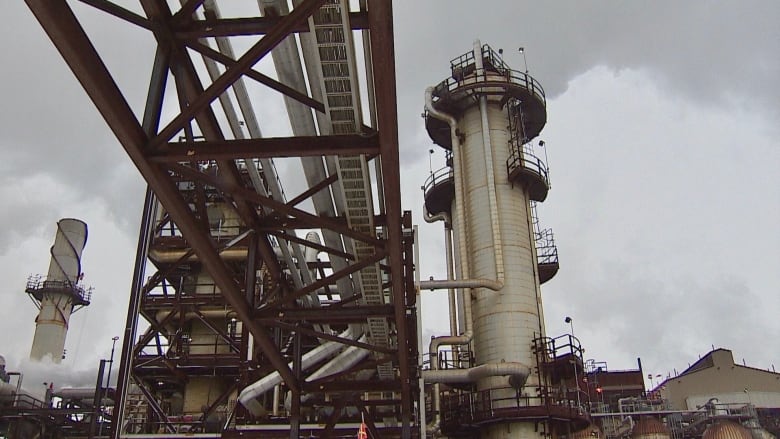After faltering about a decade ago in her ambitions to lead the Wildrose Party to power in Alberta, Danielle Smith found redemption on Monday night as leader of the United Conservative Party with a majority victory in the provincial election.
Smith became premier in October after winning the UCP leadership vote in the wake of Jason Kenney’s resignation, and now has a much broader mandate after a victory over the Alberta New Democratic Party.
“To paraphrase our dear friend Ralph Klein, ‘Welcome to another miracle on the Prairies,'” Smith said to cheers from the crowd in Calgary.
The election comes at a time when the province is still riding relatively high commodity prices and a projected budget surplus.
Still, Smith will be facing several economic and financial challenges, especially as experts point to growing need to attract investment to the province, the so-called Alberta Advantage shows signs of eroding and oil prices have recently slipped in value.
“There is no free ride for anybody. There are a lot of issues that have to be addressed,” Calgary Chamber of Commerce president Deb Yedlin said in an interview.
Jobs and the economy were not major themes during the election campaign, but are still paramount, said Yedlin.
“In Calgary, we see an unemployment rate that’s higher than most people expect and yet we hear all about the job vacancies and that’s because we don’t have the right people for the right jobs,” she said.
Choppy waters ahead
In February, Smith released her first budget as premier with an assumed price of $79 US per barrel of the benchmark West Texas Intermediate. Prices have lingered in the low $70s for most of May.
The upcoming years will be financially important for the provincial government as a large portion of its debt comes due.
For many Albertans, the escalating cost of living is a major concern, especially as wages aren’t increasing nearly as quick.
For the last several decades, the term Alberta Advantage has been a mantra focusing largely on the prosperity of the province combined with low taxes, higher incomes and a good level of services compared to the rest of the country.
The Alberta Advantage is showing signs of disappearing, said economist Charles St-Arnaud, chief economist with Alberta Central, pointing to how wages and incomes in the province will fall in line with the national average in the next four to five years.
Real estate prices are lower in Alberta compared to some other provinces, but when the cost of taxes, insurance, utilities, rental rates and other factors are taken into account, statistics show how living in Alberta is not cheaper than the rest of the country.
“There are some signs showing that more and more, houses in Alberta are getting more expensive. We had one of the most robust housing market over the past few years.
“There continues to be pressure with rent increasing quite fast, especially in the main cities.”

Potential investment bonanza
The oilpatch is profitable and doing well financially, but there still is a lack of investment in the province compared to a decade ago. That could change in the coming years as the oil industry is proposing tens of billions of dollars in investment to reduce its greenhouse gas emissions, such as building carbon capture and storage facilities.
The federal government is offering tax credits to spur those investments and there’s pressure on the Alberta government to promote those decarbonization efforts, too.
“That’s probably the number 1 challenge for [Smith]” said St-Arnaud.
“That’s going to be a big question for the next provincial government — how much of a role does it want to play in financially supporting this?”
Beyond dollars and cents, St-Arnaud said there’s also a need for the provincial government to be an attractive place to do business to help encourage foreign investment.
“It’s not just introducing a tax credit. There’s a lot in terms of removing political and policy uncertainty that can make a difference for those foreign investors deciding to invest in decarbonization here in Alberta versus other places around the world.”
Yedlin is urging the UCP to introduce its own investment tax credit to help the oilpatch reduce emissions, while also putting politics aside and working with the federal government.
“We need to have a collaborative approach to addressing some of the issues, especially what will make the energy sector competitive from the decarbonization standpoint. And that means the federal government talking with the Alberta government and keeping the doors open,” she said.
For now, Smith isn’t showing any signs of changing her combative approach to Ottawa.
“The prime minister is already ready to introduce a de facto production cap on our oil and gas sector that, if implemented, will result in tens of thousands of jobs lost, tens of billions in lost investment, damage our province’s fiscal position, and bring economic hardship to Albertans,” she said in her victory speech.
“As premier, I cannot under any circumstances allow these contemplated federal policies to be inflicted upon Albertans. I simply can’t and I won’t.”


